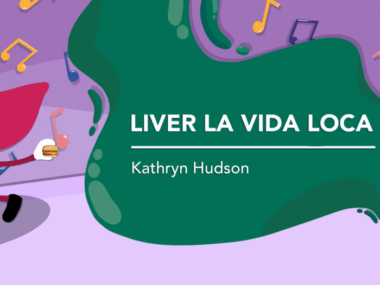Dosing begins in trial of drug combo for severe fatty liver disease
Resmetirom-denifanstat mix may help MASH patients with cirrhosis
Written by |

The first healthy volunteers have been dosed in a Phase 1 clinical trial testing a combination therapy for metabolic dysfunction-associated steatohepatitis (MASH), a severe form of fatty liver disease.
The combo, being developed by Sagimet Biosciences, contains the company’s experimental oral therapy denifanstat and Madrigal Pharmaceuticals’ resmetirom, the active ingredient in the only MASH-approved therapy, Rezdiffra.
The milestone “is an important step in the development of a new, potentially synergistic combination treatment for MASH,” David Happel, CEO of Sagimet, said in a company press release.
“As we look ahead, our goal is to combine two therapies with complementary mechanisms of action into a single tablet that will improve clinical outcomes of patients who are living with cirrhosis [irreversible scarring] of the liver and who currently have no approved options,” Happel said.
In MASH, the buildup of liver fat leads to inflammation and fibrosis (scarring), which if left unchecked can set the stage for life-threatening conditions like liver failure and cancer.
Treatments gain preferential regulatory status
Rezdiffra is a daily oral therapy that works by activating thyroid hormone receptor beta, a protein that’s involved in liver scarring in MASH. It is conditionally approved in the U.S., in combination with diet and exercise, for people with MASH who have moderate to advanced liver fibrosis but no cirrhosis. Rezdiffra was also recently granted conditional approval in Europe.
Conditional approval allows a therapy to be marketed based on early clinical trial data that suggest clinical benefits, with full approval dependent on additional trial results confirming the therapy’s efficacy.
Denifanstat, which blocks the activity of fatty acid synthase, a protein that makes liver fat, has been developed by Sagimet as a potential MASH treatment. It received breakthrough therapy designation in the U.S. to treat MASH with moderate to advanced liver fibrosis but no cirrhosis. The designation is meant to speed the therapy’s development and regulatory review.
Data from a Phase 2b clinical trial (NCT04906421) showed denifanstat was better than a placebo at resolving MASH without worsening fibrosis in adults with biopsy-confirmed MASH and moderate to severe liver fibrosis. Benefits were seen also for participants with severe liver fibrosis (stage F3).
Sagimet last year announced plans to move denifanstat into Phase 3 trial testing, but the company has since recalibrated its plans, citing business considerations and financial reasons.
The company is now evaluating whether combining denifanstat with resmetirom could benefit MASH patients with cirrhosis. The decision is based on the positive Phase 2b data, as well as findings in two mouse models of MASH, showing that combining both therapies had a greater effect on liver disease markers than either on its own.
The ongoing Phase 1 study is testing single and multiple doses of the denifanstat-resmetirom combo in up to 40 healthy adults. The goal is to evaluate the therapy’s safety and pharmacological profile, as well as to identify any unexpected interactions between the two drugs.
“It’s exciting to see Sagimet initiate development of a combination of denifanstat and resmetirom with this Phase 1 … trial which could answer important questions about the compatibility of these two molecules in humans,” said Rohit Loomba, MD, a professor at the University of California San Diego who serves as a scientific advisor for Sagimet on denifanstat’s development.
If positive, results will be used to determine the best doses of both therapies to be tested in a future proof-of-concept Phase 2 trial in MASH patients with cirrhosis (stage F4).
“I anticipate that combination therapy may become the standard of care in cirrhosis due to MASH in the future, and offers the potential to improve outcomes of disease including in the most advanced F4 patients, as there are currently no approved therapies for these patients,” Loomba said.



